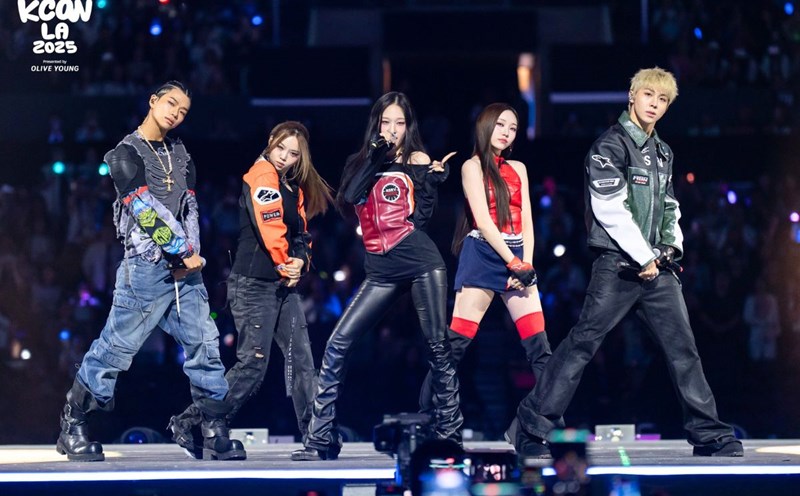Signs of Kpop's decline
In recent months, many Kpop groups managed by small and medium entertainment companies have announced their disbandment and failure to complete contracts according to the industry's 7-year standard.
The situation of early disbandment of music groups not only disappointed fans, but also raised concerns about the decline of Korea's billion-dollar industry.
According to industry insiders, the early disbandment of groups like Purple Kiss (under RBW, formerly owner of MAMAMOO), Weeekly (ISTao Entertainment) and EVERGLOW (Yuehua Entertainment) since the beginning of this year may stem from the main reason being "high production costs, but reduced investment".
A source explained: "After a series of scandals with fraud, many investors have withdrawn from the entertainment industry, and distributors have become more cautious. Due to the lack of funding, the Kpop market in general has narrowed.
Another internal source said that the cost of producing idol groups - from MV making, shaping, and promotion - has increased sharply. If the profits do not keep up with the investment, the group will be forced to stop operating.
This puts particular pressure on small and medium-sized companies, as they cannot compete with industry big guys like HYBE, SM, JYP and YG - which spend millions of USD on production and promotion every time a new group is launched.
Meanwhile, K-pop album sales have also declined in recent years. Apart from the groups in the 4 largest companies, very few groups from small companies have sold hundreds of thousands of albums, not to mention millions of copies.
Small companies that want to produce a successful music group require a unique music style and different strategy.
The fact that big companies like HYBE are acquiring many other companies is causing Kpop to lose its "diversity". According to critic Kim Heon Sik, this is the reason contributing to the current crisis of Kpop.

The "Kpop 4.0" era
Kpop's decline is a sad thing, there are even opinions that after the Gen 2 and Gen 3 period with the explosion of Super Junior, SNSD, TVXQ, Big Bang, BTS, Blackpink, EXO..., Kpop is "disappearing" and is no longer the same as before.
However, according to Hankookilbo, some of the recent successful K-pop-related products are signaling a new era of the global influence of this industry, shaped by foreign creators and capital.
The explosion of a series of soundtracks in the Netflix animated film Kpop Devils hunter is proof of this. The song "Golden" by the girl group Huntr/x in the film made history when it topped the US Billboard Hot 100 chart, a record that no other female Kpop artist has achieved.
The film K-pop Devils Minister is produced by Sony Pictures animation (USA), voiced mainly by Korean-American artists and featured Korean music producers. This makes it considered the first large-scale K-pop project formed and produced outside of Korea.
Many in the industry call this a turning point starting the "K-pop 4.0" era. The "K-pop 3.0" period is when Korean entertainment companies export talent. But with Kpop 4.0, foreign capital and creators produce Kpop-related content themselves.
Apple TV+ is launching a new program called "Kpopped," with the idea of adapting global pop songs in Kpop style.
The collaboration between Western artists and Kpop groups in this program marks a spectacular change: American pop music was once a source of inspiration for the birth of Kpop, but now it is being reshaped by Kpop itself.











